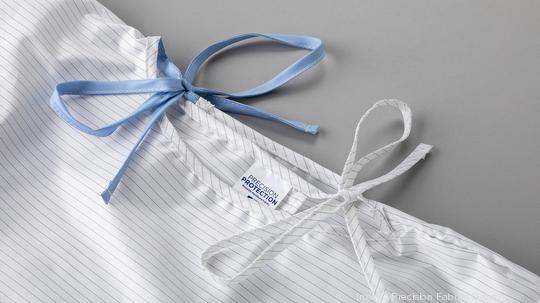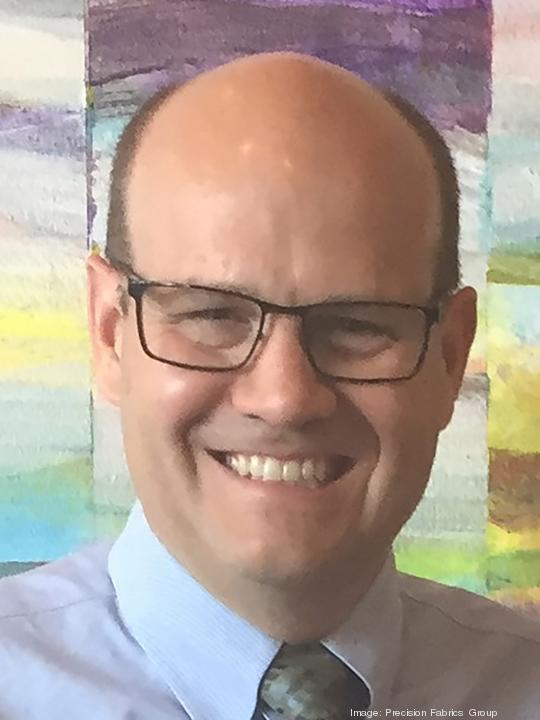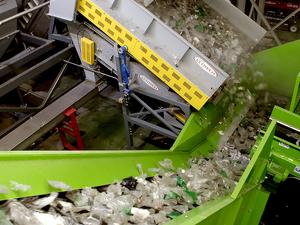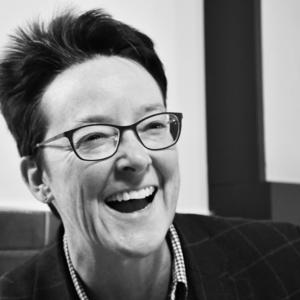
Two Triad textile companies are teaming up with a Massachusetts manufacturer to make a new line of reusable personal protective equipment for hospitals made from recycled plastic bottles.
Woven from REPREVE yarns made by Greensboro-based Unifi (NYSE: UFI), Precision Fabrics Group, also headquartered in Greensboro, will make fabrics that will be sewn into medical gowns, surgical caps and scrubs by Merrow Manufacturing, a nearly 200-year-old company in Fall River, Massachusetts.
The full line of Merrow Medical Net Zero PPE garments includes base layers, scrubs, vests, surgical caps and isolation gowns. Designed for physicians, nurses and health care systems, the garments provide a reliable domestic supply chain with a cost per use that is 25% to 33% less expensive than the cost of an equivalent disposable garment, thanks to its reusable properties. The PPE can be laundered more than 100 times and, rather than be disposed, returned to Unifi to be reprocessed into yarns, creating a closed loop, zero waste process.

Unifi is a key supplier to Precision Fabrics Group, which was created in 1988 in a leveraged buyout from Burlington Industries. With manufacturing facilities in Virginia and Tennessee, PFG has evolved from a traditional textile manufacturer into an engineered materials business, focused on highly technical, high-quality woven and non-woven fabrics.
The collaboration between PFG and Merrow began during the early days of the Covid-19 pandemic as the company scrambled to locate fabrics to meet the rapidly escalating demand for domestically made PPE, according to PFG Corporate Vice President Byron Bassett. Precision Fabrics’ relationship with Unifi and its REPREVE product was a natural paring to Merrow’s Net Zero PPE product line.
“We really are taking all of the waste that is normally associated with disposable gowns or even reusable gowns that would be thrown in landfill.” Bassett told Triad Business Journal. “We’re taking that completely out of the equation. Medical waste that goes to landfills each year is in the hundreds of millions of pounds, and we see this as an opportunity to create a more sustainable approach.”
The nation’s largest vertical supply chain for the manufacture of recycled health care soft-good products, Merrow’s Net Zero PPE will create at least 500 jobs at factories in Massachusetts and California, and will support jobs at PFG and its supporting supply chain. Each Merrow Medical Net Zero PPE gown or scrub set that is manufactured repurposes approximately 40 recycled plastic bottles and, because they can be recycled again, it eliminates the cost of disposal for health care systems.
“The Merrow Medical Net Zero PPE garments are the first step to re-engineering the nation’s critically important medical garment/PPE supply chain, utilizing reusable, recyclable materials and manufacturing them in solar-powered factories in the United States,” said Merrow Manufacturing CEO Charlie Merrow. “It is vital that we not only create a superior, recyclable medical garment, but also strengthen our national security by rebuilding the supply chain for these products domestically.”
The Merrow Medical Net Zero PPE program provides an opportunity for PFG to re-enter the PPE market. The company was among the first patent holders for polyester reusable hospital gowns in the U.S., dating back to the late 1990s. With the off-shoring of much of the PPE manufacturing since, Bassett said PFG was unable to participate in the space for two decades.
The collaboration with Merrow brings the company back into that market, and in a big way. Bassett said the new line of business will go a long way to support continued employment of its 600 workers in four locations. The company employs approximately 250 in the Triad between its downtown headquarters and its manufacturing and warehouse facilities, all in Greensboro.
“We see this as a way of creating a new conversation around what has been a very difficult year-and-a-half for for hospitals and providers of medical devices,” Bassett said. “The recycled gowns are lowering the cost per use. They help hospitals meet sustainability targets. They’re the best protection available for clinicians. And finally, it's reshoring the PPE supply chain, so from that standpoint we really feel like this is going to provide a real opportunity for us to grow our business, secure jobs that are here and really grow this category.”
According to Merrow Manufacturing, the U.S. uses an estimated 2 billion disposable isolation gowns annually. If 10% of all disposable gowns were converted to Net Zero PPE, it would result in the elimination of 200 million disposable gowns, the repurposing of 80 million plastic bottles and more than 50 million pounds of plastic waste could be diverted from U.S. landfills.
Bassett said he expects a gradual conversion by hospital systems and medical facilities from disposable to reusable PPE, but he sees the trend as favorable long term.
“One of the hospital systems that we're working with would save over a million dollars in two years switching from disposables to reusables,” Bassett said. “We also recognize there's a place for disposables, and it certainly takes time for hospitals to make the decision to convert from a disposable PPE mindset.”




